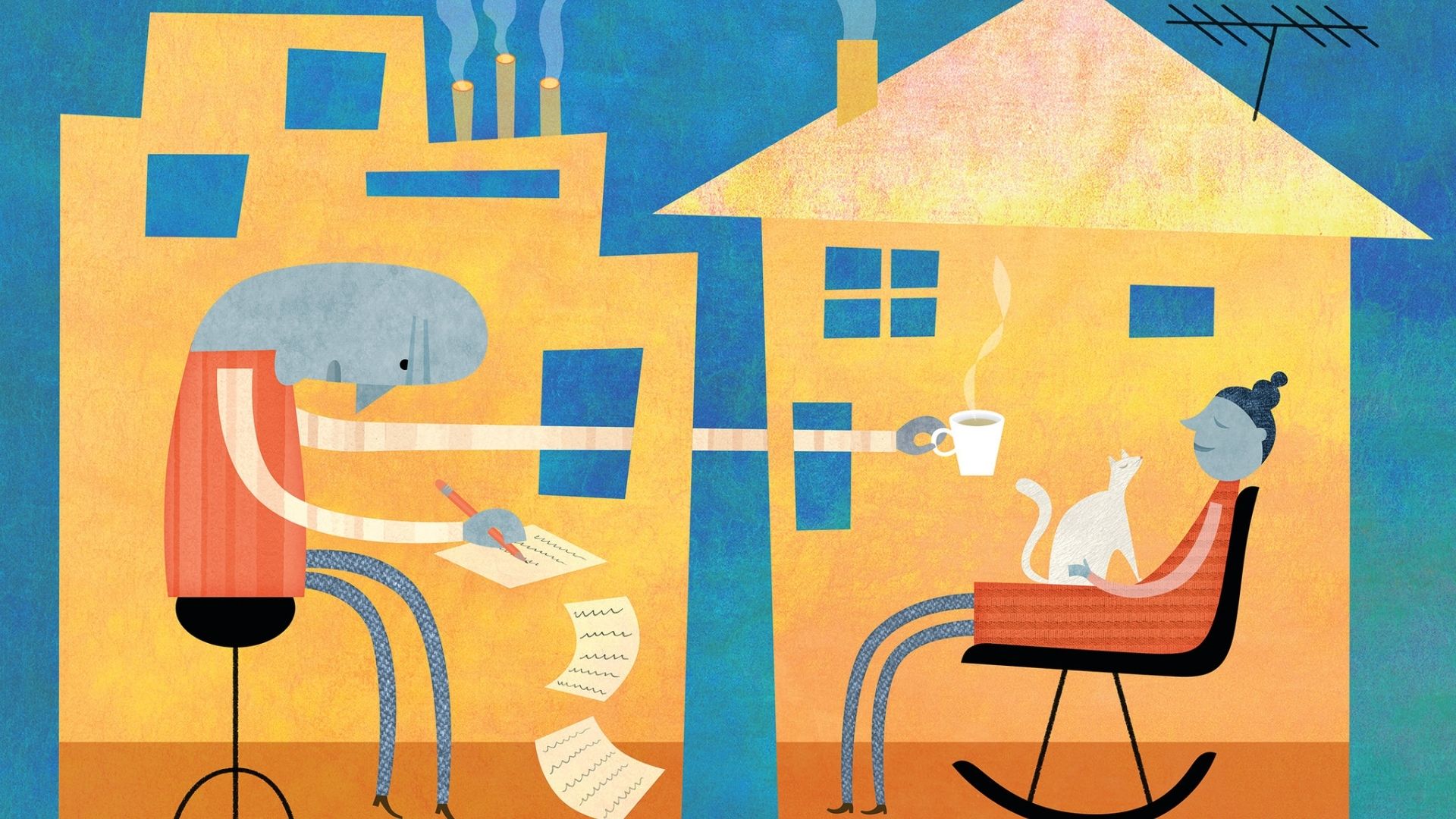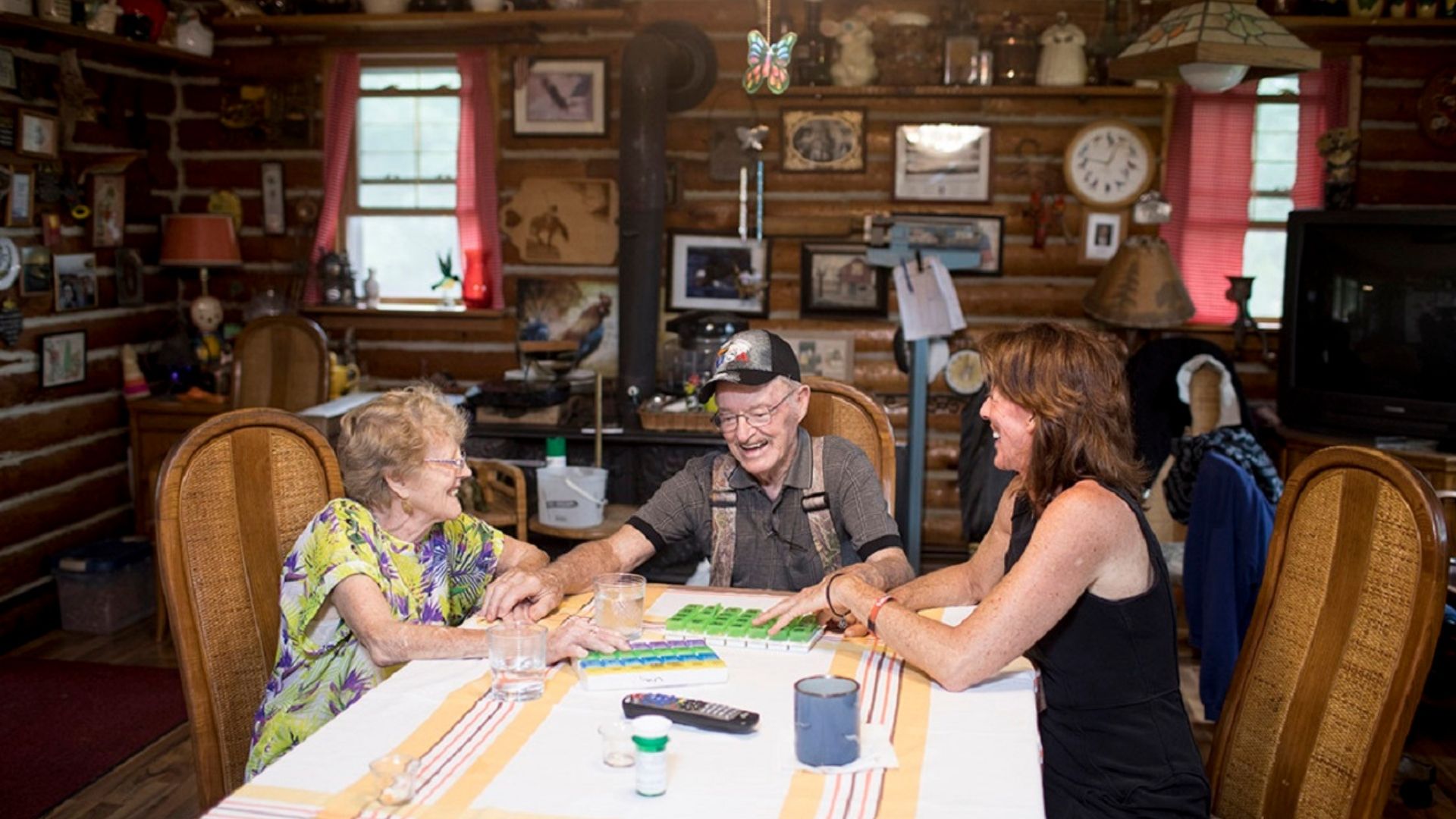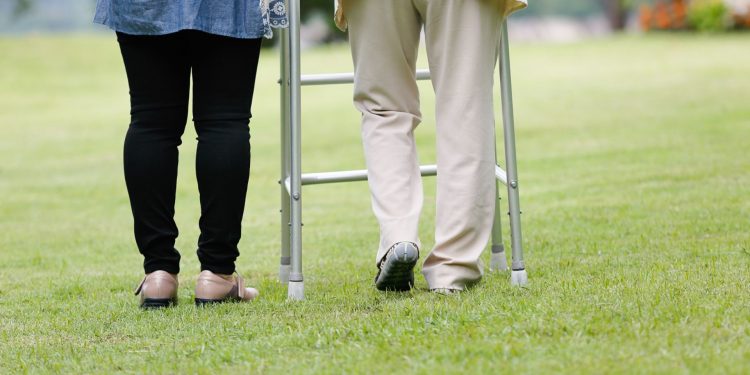Family caregivers are often the unsung heroes in every community and they give more of themselves than they let on. You see, caregiving of an elderly parent is not always easy. The quirks and behaviours that the senior has since young are accentuated and this can make them hard to live with.
Caregivers of parents suffering from dementia or other debilitating conditions can face periods where the patients do not recognise them, or they may even become violent. These are some of the scenarios caregivers face, making it hard to reconcile with the fact that they have turned their backs on lucrative careers, sacrificed time and even health to look after these seniors.
For these caregivers, each day is a new experience since a seniors’ care needs can turn easily and caregivers must respond quickly to adjust to the new routine. Caring for loved ones who are sick or disabled can be thankless and during the pandemic, it can be unbearable. Yet, many caregivers tend to suffer in silence or look quietly for more financial support from the Government or other family members.
More financial help
The Singapore Government has recently looked into the financial strain faced by many caregivers and to better support them, it is proposing to raise the Home Caregiving Grant (HCG), among various moves.
This was one of several proposals put forth in a White Paper on women’s development which was submitted to Parliament on 28 March.
The HCG is a $200 monthly cash payout to help families care for loved ones who have moderate to severe disabilities and applicants must be Singapore citizens or permanent residents, with a parent, child or spouse who is also a Singaporean citizen and living here. The per capita household monthly income must be below $2,800.
If the proposals are successful, the $200 cash payout will double to $400 for beneficiaries with monthly per capita household income of up to $1,200. Beneficiaries with no income who live in a residence with an annual value of up to $13,000 will also be eligible for the revised $400 grant. But even if the enhancements are passed, can these caregivers cope with rising living costs and the increased cost of caregiving with just an additional $400? What about the emotional and psychological effects on the caregivers themselves?

Respect and understanding
Ms Carlotta Liew, 28, looks after her grandmother who suffers from Parkinson’s Disease and is also recovering from a stroke. Ms Liew’s parents died in a traffic accident two years ago, leaving her and her grandmother.
”Fortunately my parents left an inheritance in their wills, and that helps with the costs of caring for Grandma. But these are not enough to cope with rising costs of living. Thankfully, I can supplement the costs with my income from tutoring but caring for grandma limits my ability to take on more jobs,’’ she says.
An only child, Ms Liew says being young enables her to be “marketable” for more higher-paying work in future, but this is an option that is not likely for older caregivers like Derrick Jacobs.
The 50-year-old social distance ambassador used to be a marketing manager but was retrenched in July 2021. He is grateful for a competitive severance package but as a caregiver for his wife, who suffers from Progressive Supranuclear Palsy, a rare brain disorder that results in the weakening of certain muscles, he sees this bundle depleting quickly.
‘’Before I was retrenched, I was thinking of ending the contract of our helper. Then the retrenchment happened, and we learnt of my wife’s diagnosis barely a month later,” he says.
At first, the symptoms did not look vastly different from Parkinson’s Disease, but her condition deteriorated rapidly three months later.
“I had sent out resumes to many places, but jobs were hard to come by amid the Covid-19 pandemic. I was glad to get the social distance ambassador job. I also drive Grab in the evenings,” he adds.
‘’I am glad to have a loyal helper, but it is taking a toll on both her and me. Now that the restrictions are lifted, I will have to look for another job, but I don’t know if I will be as lucky,’’ says Mr Jacobs.
Minister of State for Education and Social and Family Development Sun Xueling said last year that a survey conducted by (MSF) found that women in dual-income households are five times more likely than men to be managing housework and caregiving responsibilities.
She added that women are also nearly four times more likely to have left their jobs than men.
At the virtual closing session of the Conversations on Singapore Women’s Development last September, Prime Minister Lee Hsien Loong said that more needs to be done for the emotional and financial support of women, seeing that they often have additional caregiving responsibilities for children or elderly parents.

He added that caregiving responsibility hinders women’s work and careers, as caregivers often have to make significant sacrifices, especially turning their backs on lucrative jobs and even relationships.
Caregiving is a great drain on savings and income as well as on emotional and physical health, and PM Lee agreed that caregivers, regardless of gender, deserve more support. Another critical issue is the well-being of caregivers themselves, as many feel they do not have personal time. They do not even know where and how to seek help, resulting in many of them feeling exhausted and burnt out.
PM Lee said that one direct avenue is to provide more financial assistance.
To that end, the Ministry of Health (MOH) is studying how it can enhance the Home Caregiving Grant scheme, to provide more help for targeted groups as well as looking into how it can expand the options for respite care to meet the varied needs of caregivers.
Ms Liew says, “More money and having more avenues for caregivers to share their woes and concerns would be great. But it is also important for people to be educated about what caregivers go through and the sacrifices they make. There need to be more conversations too.”
Awards to recognise unpaid family caregivers

In a recent global survey, more than 3 in 5 caregivers said the person they care for does not appreciate their efforts. So in an attempt to recognise their contributions, Carewell in the United States announced the winners of its first-ever Family Caregiver of the Year Awards last year.
The awards recognise US-based unpaid family caregivers for exceptional diligence and support in caregiving with the first-place winner getting US$1,500 (S$2,058.90) and second- and third-place winners receiving US$750 and US$250, respectively.
Of the 100 nominations, full-time 911 dispatcher from Colorado Patti Hopkins, was named the first-place winner. Ms Hopkins cares for both her 85-year-old mother, who has macular degeneration and has suffered a series of falls, and her brother, who is bedridden and blind—and to whom she donated a kidney in 2006.
Perhaps such an award can be given to the unpaid family caregivers in Singapore to show that they too are appreciated.
For a start, the Agency for Integrated Care (AIC) teamed up with Ya Kun Kaya Toast to encourage the public to treat caregivers to a cup of coffee each under AIC’s Give a Cuppa Care movement between 7 February and 6 March this year.
Members of the public sent a regular cup of hot coffee or tea to a caregiver through the Ya Kun Kaya Toast mobile app.
An AIC spokesman said that the Give a Cuppa Care movement was a direct way to appreciate caregivers that was positively received.
“Our outreach efforts have shown that many caregivers prefer other ways of appreciation such as messages of affirmation, appreciation treats such as cups of coffee or meals, or having someone cover their duties while they have some respite. Based on the success of Give a Cuppa Care, we are considering something similar in the future to appreciate our caregivers.”
Economic upsides
The idea that caregiving is a drain on the economy needs to be re-examined and recent studies have shown that, besides emotional and health benefits, increased support for caregivers has economic benefits too.
New research from AARP, a US-based interest group that focuses on issues affecting those over 50, has shown that if employers and governments enact more support for working family caregivers aged 50 and older, not only would the productivity of these workers increase, but the policies could also cause the US gross domestic product (GDP) to grow by as much as US$1.7 trillion ($2.4 trillion) by 2030. That economic boost could even grow to US$4.1 trillion by 2050.
“Looking at the people who are taking care of somebody, many of them either have to reduce their hours [at work], get passed over for a promotion, or they leave the workforce entirely. If we could stop that [from happening], our economy would grow,” said Ms Deb Whitman, AARP executive vice-president and chief public policy officer. She was speaking at a 26 March event with Forbes magazine to discuss the results of the research.
Workplace policies that support family caregivers include options such as flexible hours, telework options, paid time off and family medical leave, affordable backup care and referrals to community resources. It was found that many employers implemented some of these policies temporarily in 2020 as more companies shifted to working from home to deter the spread of the coronavirus pandemic.
The question now is how these employers will be applying their pandemic practices and experiences to their workforce when companies reopen their offices.
Worldwide, women are the majority of family caregivers, and they often experience adverse employment consequences than men as a result of caregiving. Older employed women are more likely to cut back on hours, take a leave of absence or drop out of the labour force because of caregiving responsibilities.
When Covid-19 reared its ugly head, many workers received telework options and these were “a huge benefit for family caregivers to be available for their loved ones and have flexible work so they can take them to their appointments and other things they need,” Ms Whitman said. “I hope that [flexibility] continues and so five years from now, this won’t be a blip where everybody knew that it could get done and then forgot that it actually worked.”
“One advantage of Covid is it did shine that light on family caregiving,” AARP’s executive vice president and chief advocacy and engagement officer Nancy LeaMond said. “Probably many people who didn’t think they were family caregivers — they might be driving their parents or their grandparents to a doctor’s appointment, or doing grocery shopping — suddenly realised they were part of the 38 million” who are family caregivers, she added.
“It’s very important that the corporate or employer culture recognises family caregivers and knows that people may be giving their all to the mission of the organisation every day, but at the same time, they have other family responsibilities,” Ms LeaMond adds.
“At the beginning, there were few options available to me except to quit my full-time job and devote my time to caring for my grandmother. But as technology and flexible work arrangements have become more established, I can look after my grandmother and still hold down a part-time or contract job,” Ms Liew says.
“I hope that there will soon be ways to give me the chance to work longer, earn more and still be capable of looking after my grandmother. That will really make a difference to me and the other caregivers out who are forced to quit our jobs to look after our elderly parents and grandparents. It may be some time but I am confident such a change will come soon.”
RELATED: Burden of aging parents rests on the shoulders of single, unmarried children
Join the conversations on TheHomeGround Asia’s Facebook and Instagram, and get the latest updates via Telegram.














